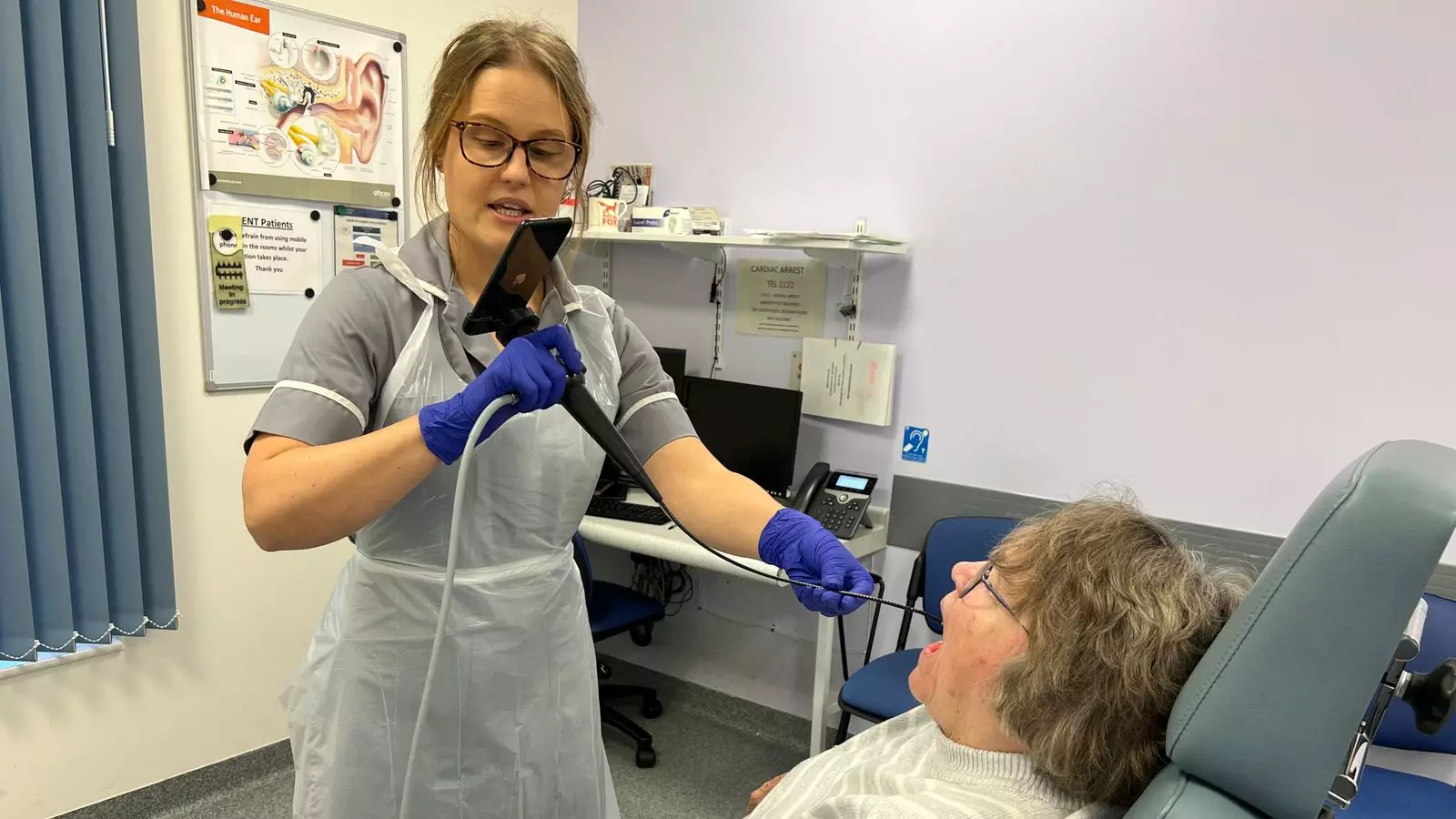In a significant advancement for cancer diagnostics, the National Health Service (NHS) in the UK has launched a trial for an innovative iPhone adapter designed to expedite the detection of throat cancer. This device, which promises to deliver rapid results and enhance early-stage detection, signals a transformative shift in how patients are diagnosed and reassured about their health. Conventional methods, such as endoscopies, often lead to prolonged anxiety as patients await results, but this new technology aims to alleviate those fears.
The device in question, known as the endoscope-i adapter, is ingeniously crafted to connect to iPhones, effectively turning a commonly used smartphone into a powerful medical tool. Featuring a 32mm lens endoscope eyepiece, the adapter allows healthcare professionals to record high-resolution videos of the throat while examining patients. Accompanied by a user-friendly application, the device enables nurses and clinicians to capture and send this footage directly to specialists. This seamless integration of technology not only optimizes the diagnostic process but also empowers patients by providing quicker access to their results.
Timeliness in cancer diagnosis is critical for increasing survival rates. The preliminary trials conducted by the North Midlands University Hospitals NHS Trust have already shown promising results: over 1,800 low-risk patients received clear reassurances about not having throat cancer within a mere 23 hours. This rapid diagnosis is a game-changer, alleviating the stress and uncertainty that typically accompany such medical assessments. Furthermore, the device successfully identified cancer in approximately 1% of the participants, which underscores its potential effectiveness in early-stage detection.
The widespread implementation of the endoscope-i adapter could significantly ease the strain on traditional healthcare facilities. With around 250,000 urgent referrals for suspected head and neck cancer each year, the ability to perform these procedures in community settings rather than hospitals could streamline operations. This reduction in the need for hospital visits not only serves to conserve valuable healthcare resources but also minimizes waiting times for patients, making the healthcare experience more efficient and less daunting.
The feedback from patients who participated in the trial has been overwhelmingly positive. Janet Hennessy, a participant, expressed how transformative the experience was, noting that the rapid results alleviated the mental burden of prolonged uncertainty. For individuals awaiting a diagnosis, having to contend with anxiety for weeks is a daunting ordeal, and being granted peace of mind so quickly is invaluable. On the other hand, 31-year-old Kyle Jones described his shocking diagnosis through this device, highlighting the tool’s crucial role in his timely treatment. His narrative emphasizes the potential life-saving impacts of such technology.
Experts within the NHS, including Dr. Cally Palmer, emphasize the critical nature of early cancer detection. As cancer remains one of the leading causes of mortality worldwide, innovations like the endoscope-i adapter hold the key to transforming cancer care. The capacity to deliver fast and accurate diagnoses not only improves individual patient outcomes but could also have broader implications for public health strategies. As trials continue and evaluations progress, there’s cautious optimism regarding the expansion of the device’s use across the country.
With the advent of the NHS iPhone adapter, the healthcare landscape is undergoing a significant transformation. This device exemplifies how technology can enhance medical diagnostics, improve patient experiences, and ultimately save lives. As trials expand and technology becomes integrated into routine healthcare practices, the future for throat cancer detection looks increasingly promising. This innovative step not only signifies advancements in medical technology but also heralds a brighter outlook for individuals facing the uncertainties of cancer diagnosis.


Leave a Reply